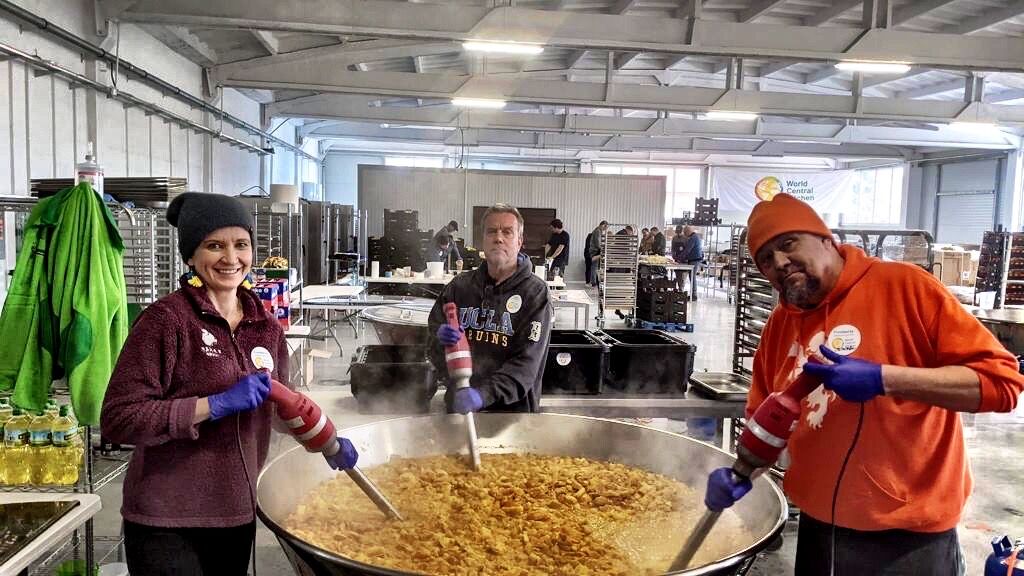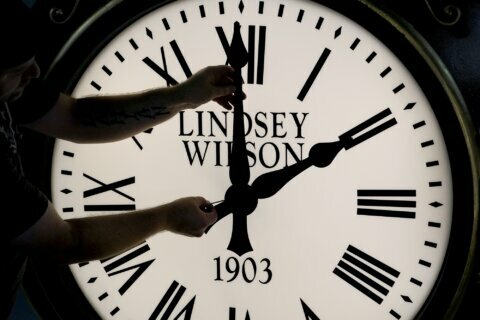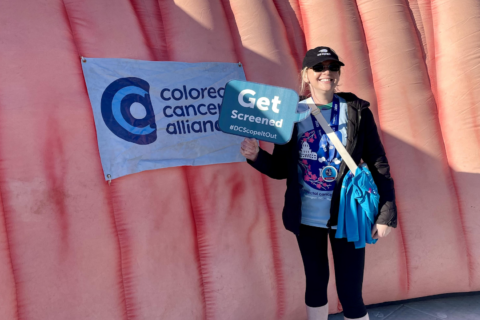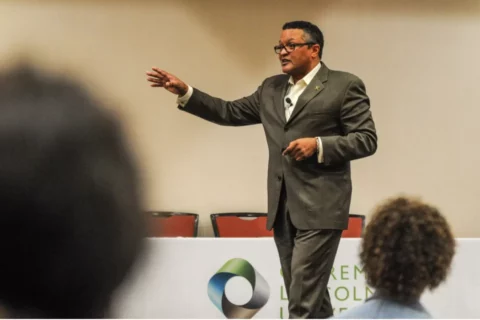Carne and his friends flew through Amsterdam and landed in Krakow, Poland.
“We got our rental car and headed to the commissary in Przemysl [pronounced SHEM-ih-shill] about two hours away,” said Carne. “We met with the person in charge of volunteers, told them who we were, signed our names to some waivers — and that was it. We showed up the next morning and they put us to work.”
Since their trip was spur-of-the-moment, Carne said they couldn’t find a place to stay that was near the commissary.
“We were about an hour and fifteen minutes away, in extreme rural Poland, in a town I can’t pronounce,” said Carne. “We lived in a shack on a dirt road, literally.”
Carne’s iPhone identified this town south of Przemysl as Uztrzyki Dolne. “Our shack was very close to the Ukrainian border. In fact, we got a message from our cellular providers that said ‘Welcome to Ukraine,’ so I guess we were within feet of the border.”
Carne and friends would wake up at 5:30 a.m., be out the door at 6:15, and drive 45 minutes on winding roads to get to the World Central Kitchen, in the Polish city of Przemysl by 7:45 a.m.
“Our day would invariably start with the peeling and cutting of potatoes. Then apples, and whatever vegetables they had that day. Then we’d assist the chefs in preparing whatever they were making that day, usually a stew or a soup,” Carne said.
Later in the day, after the food was prepared, Carne and fellow volunteers would drive to the Medyka border crossing. “The first thing the refugees would see when they crossed the border was the World Central Kitchen tents,” Carne said.
Volunteer John Carne said the emotional toll of encountering Ukrainian refugees and their plight first-hand was much more direct than watching the crisis on television.
“It’s a much different experience if you’re in the midst of it,” said Carne. “It was something, quite frankly, I was unprepared for.”
“The despair was thick. Just seeing the faces of these poor kids … Jesus,” he said.
Carne couldn’t imagine experiencing the uncertainty refugees now face.
“They’re thinking, ‘OK, I’m safe. Now what?’ They don’t have any idea where they’re going. A lot of them have no money,” he said.
Carne was in Poland from March 14-22, and says he and his fellow volunteers will likely return.
“This was the one time I felt like I had to do more than just write a check,” Carne said. “And I’m very glad that I did.”











